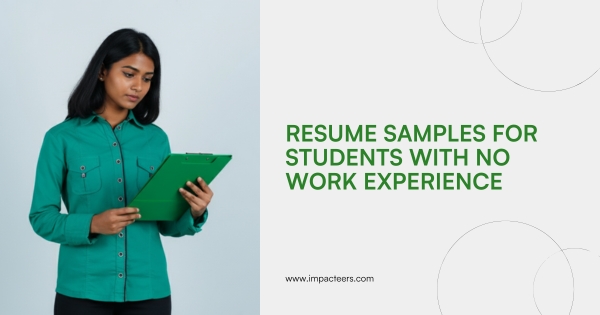A complete Campus Placement Guide for Students in India. Learn resume tips, interview prep, aptitude strategies, and how to land top offers from top companies.

Why Campus Placement Matters: A Campus Placement Guide for Students
Campus placements are one of the most exciting and nerve-wracking experiences for college students, especially in engineering and technical streams. They provide direct access to companies hiring for jobs without the hustle of external job hunting.
For many, it’s their first professional step into the real world. The right preparation can help you grab top offers from consulting giants, IT firms, and product companies.
Understanding the Campus Placement Process
While each institute may run things slightly differently, the standard flow includes:
- Pre-placement Talks (PPTs): Get insights into the company culture, roles offered, and pay.
- Aptitude Test: A basic screening round testing quantitative, verbal, and logical reasoning.
- Group Discussion: Often used by service-based and consulting companies.
- Technical Interviews: Role-specific questions, especially for engineering domains.
- HR Interviews: Personality and culture-fit assessment.
Being aware of this structure is the first step in solid preparation.
Resume Building: Your First Impression in the Campus Placement Guide for Students
First impressions are often your resume. Recruiters spend less than 30 seconds reviewing it.
Key elements to focus on:
- Contact Info and LinkedIn Profile
- Education with CGPA or percentages
- Projects and Internships
- Technical Skills & Certifications
- Paper presentations or coding contests (if applicable)
- Position of Responsibilities
Use action verbs and quantifiable achievements.
Why You Must Use a Professional Resume Builder
Your resume needs to be clear, concise, and ATS-friendly.
Why choose a resume builder?
- Pre-made templates tested by recruiters
- Keyword optimization for each job type
- Easy customization for different roles
- Instant PDF download and formatting
We recommend using Impacteers Resume Builder, tailored for Indian college students, especially engineering and MBA aspirants.

Mastering Aptitude and Reasoning Tests: A Campus Placement Guide for Students
Most companies start their selection with aptitude tests.
Subjects include:
- Quantitative Aptitude: Profit-Loss, Time-Speed-Distance, Percentages
- Logical Reasoning: Puzzles, Series, Directions
- Verbal Ability: Grammar, Synonyms, Comprehension
Use resources like:
- RS Aggarwal (Quantitative)
- IndiaBix, PrepInsta
- Timed mock tests
Consistency in practice is key.
Campus Placement Guide for Students: Technical Interview Preparation for Engineering Students
Each branch of engineering has its own focus:
- CSE/IT: Data Structures, Algorithms, DBMS, OS
- ECE: Digital Electronics, Communication, VLSI
- Mechanical: Thermodynamics, Manufacturing
- Civil: Structural Analysis, RCC
Focus on:
- Final year project
- Research papers if any
- Tools like AutoCAD, MATLAB, Python
Also prepare for basic coding even if you’re from a non-CS background.
Group Discussion: Cracking It Smartly
Many consulting and service companies use GD to screen candidates.
Do’s:
- Initiate the discussion
- Use facts & structure
- Encourage silent members
Don’ts:
- Shout or interrupt
- Go off-topic
- Repeat others
Practice regularly in groups and watch YouTube channels for live simulations.
HR Interviews: Making a Lasting Impact
While HR rounds may seem simple, they can be deal-breakers.
Common questions:
- Tell me about yourself
- Why do you want this job?
- What are your strengths/weaknesses?
Tips:
- Personalise your answers
- Stay honest and authentic
- Smile and maintain eye contact
Mock Interviews: Practice Makes Perfect
Simulated interviews help build confidence.
Options include:
- College placement cells
- Online services like Pramp or InterviewBuddy
- Consulting services offered by coaching institutes
These provide real-time feedback and help you fix common mistakes.
Importance of Soft Skills and Communication
Even top scorers get rejected due to poor communication.
Key areas to improve:
- Presentation
- English speaking
- Active listening
You can try:
- Toastmasters clubs
- Public speaking workshops
- Daily journal writing
Dressing for Success on Campus Placement Day
Appearances do matter.
- Wear formal attire
- Avoid flashy accessories or bright colours
- Ensure personal grooming (hair, nails, shoes)
Differentiate yourself through a professional yet confident look.
Campus Placement Guide for Students: Leveraging College Placement Cells and Training Institutes”
Most colleges offer:
- Resume reviews
- Aptitude training
- Company-specific workshops
Make the most of these free or subsidised resources. Also, explore partnerships with skill development agencies.
Consulting Companies: What They Look For
Big names like Deloitte, McKinsey, and TCS expect:
- Analytical and problem-solving abilities
- Excel and PPT skills
- Crisp communication
They value well-rounded candidates, not just book-smart.
Keeping Track of Multiple Placement Rounds
You’ll apply to many companies at once. Stay organised.
- Maintain a placement tracker sheet
- Set calendar reminders
- Note key dates for paper tests, interviews, and result declarations
Campus Placement Guide for Students: Handling Rejections and Staying Motivated
Don’t let a failed interview shake your confidence.
- Seek feedback
- Identify gaps
- Keep improving
Stay connected with peers. Support each other and celebrate small wins.
Online Resources and Courses That Help
Certifications in the following can boost your resume:
- Python, Java (via Coursera, Udemy)
- Data Analytics (Excel, SQL)
- Communication Skills (edX, FutureLearn)
- Campus placement prep courses (TCS iON, PrepInsta)
Final Week Checklist Before Placement Season Begins
Resume Finalised via Resume Builder
Mock Interviews Practised
GD Topics Revised
Aptitude Practice Consistent
Dress Ready & Grooming Checked
Positive Mindset Locked

Conclusion: Your Campus Placement Guide for Students – Start Your Job Journey Here
Campus placement is the first big leap into your professional life. With the right preparation, tools, and attitude, you can not only secure a job but also launch a fulfilling career.
Don’t leave your future to chance – use a professional tool like Impacteers Resume Builder to create an interview-winning resume in minutes.
The best jobs are waiting. It’s time to go get them!
Visit Us >>> https://www.impacteers.com/home
About Us >>> https://blog.impacteers.com/
Frequently Asked Questions (FAQs)
Q1. When should I start preparing for campus placements?
Start at least 6 months before placements begin, preferably in your third year (for engineering students).
Q2. Is resume building really that important?
Yes, your resume is your ticket to the interview round. Use professional tools like Impacteers Resume Builder to stand out.
Q3. Do non-CS students need to know coding for placements?
Basic coding knowledge is increasingly required, especially for tech companies, regardless of your major.
Q4. What type of companies usually come for placements in Indian colleges?
Consulting firms, IT service companies, core engineering firms, startups, and government PSUs are common recruiters.
Q5. Can I get placed without top grades?
Absolutely. Projects, internships, communication skills, and confidence often matter more than marks.



Post Comment